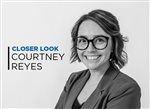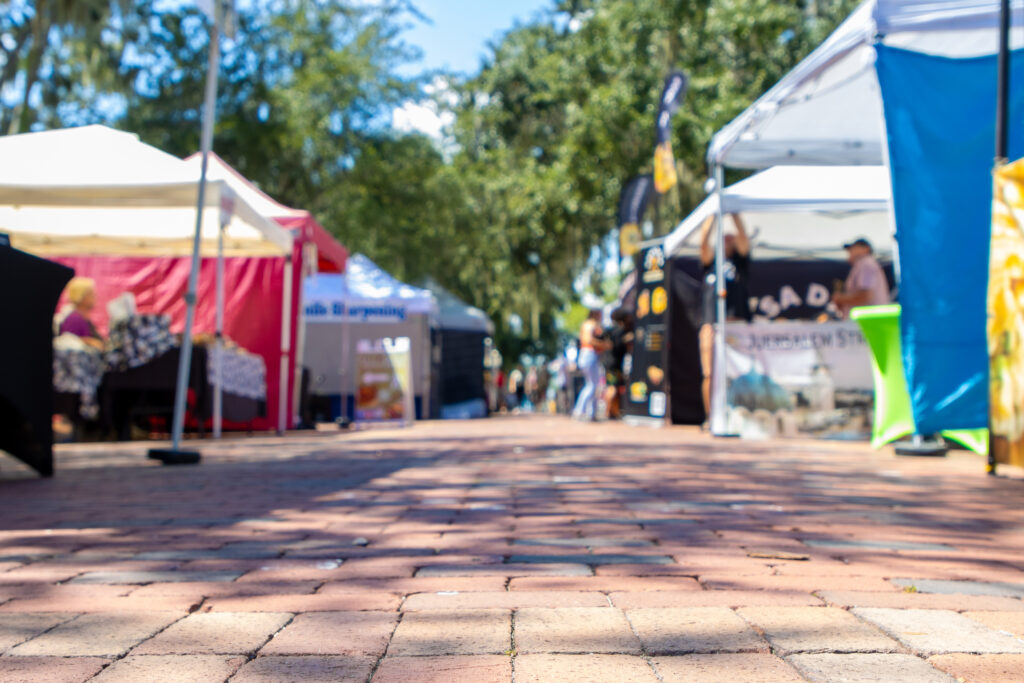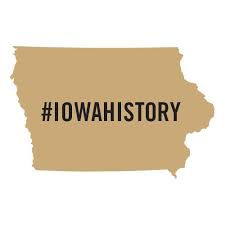A Closer Look: Courtney Reyes
Executive director, One Iowa

KATE HAYDEN Nov 27, 2019 | 5:40 pm
6 min read time
1,320 wordsArts and Culture, Business Record Insider
Courtney Reyes may be picking up the mantle of executive director at One Iowa, but she is no newcomer to the organization. Starting as an office assistant in 2017, Reyes found opportunity for growth while advocating for the LGBTQ+ community in the state and took on the role of director of development, then assistant executive director before the board of directors named her to her current role in early November.
“I wear my emotions on my sleeve,” Reyes said. “I used to think that was a really bad thing, but there’s power in emotion because it connects you to humans. How we do our work is changing hearts and minds, letting people know that LGBTQ people exist all over and we bring amazing things to Iowa.”
Before joining One Iowa, Reyes had worked in substance abuse treatment, then chose to stay home full time with her boys for seven years. She credits those years as some of the most rewarding and challenging years of her life — “they are my heart walking outside my body,” she said of her children — but by the end of 2016, she was ready for a new advocacy role.
“I think our society is in a very interesting place of ‘you must pick a career or you pick being a mom.’ So I’m really excited to bring both of those things together and to show my boys that moms can stand for something, moms have power — parents have power — and you can stand for something really amazing,” Reyes said.
What’s your professional background?
I’ve been there [at One Iowa] since August 2017, and it has been a wild ride since I stepped in the door. I love it, I love that there’s been so much opportunity for growth. Daniel Hoffman-Zinnel was our previous executive director, and I worked really well with him. I started off as office assistant and was able to keep putting myself in a position to do more, and [I] wanted to do more. He really believed in me that I have those skills to be a leader.
During my time at One Iowa the gala has been a huge part of my job and job responsibilities. I love fundraising, I love talking to people and making those human connections. I love vulnerability — I feel like that’s how you really make connections with people, by talking to them and sharing your story, having them share their story.
Why did you accept this role?
There’s an age-old question of what do you want to be when you grow up. I love that there’s a woman in charge of this organization, I think that’s pretty amazing. I felt like I have a voice to advocate for all the members of the LGBT community, especially trans folks and people of color. I wanted to make sure that was going to be a priority, and taking that job made sure that was going to be a priority. We have an amazing team of folks at One Iowa, and I’m excited to lead them to some great change.
One of our priorities at One Iowa is to make sure that workplaces are safe and inclusive spaces for the LGBTQ community. About half of folks are not fully out at work. So you show up to work and you can’t bring your whole self, and then ultimately you’re not bringing your best self to work. We found it’s really important to talk with employers, HR directors, managers, employees so that everybody can be out and be themselves at work. That is a lot of the work that our folks across the state do.
What’s the best piece of advice or feedback you’ve received going into this role?
Every decision you make is not going to make every single person happy, but keep the goal and the mission of the organization at your heart and use that to guide you – that is going to serve you well. Also to have fun – it’s such serious work and people’s lives depend on it, but if you live in that weight of it, it can be pretty heavy. We try to have a lot of joy in our office.
What’s a goal you have for your first year in this role?
I would love to see our access to health care improve greatly. We have people driving hours and hours to get to a doctor, even if it’s just for a common cold. People are being discriminated against in all kinds of health care capacities. To get more providers on board with being LGBTQ-friendly – we’re not asking anyone to be an expert in every area, but to have the paperwork, the policies in place so an LGBTQ person can show up at your clinic and feel like they can be served there.
What are those health care challenges in Iowa?
The LGBTQ community just has some things stacked up against it, specifically the transgender community. You can’t even get in the door without being slid a piece of paper and it says “male or female,” right? What if you don’t fit into one of those boxes? You’re automatically put on the defense, so then you have to figure out at what point in this conversation that you’re going to come out. It’s about a third of trans folks in the past year have experienced … discrimination, “I can’t treat you.”
We’re not asking you to do anything more than just care for [a person’s] health – being trans doesn’t have anything to do with that right now. It’s incredibly harmful, and then you don’t want to go back to the doctor because you’ve had this negative experience, and then it just sets up a lot of really scary things for trans folks.
We can start with policy – helping find friendly providers and then training them, training their front desk, training the nurses, the doctors, everybody in between so that when an LGBTQ person walks through the door they feel safe and they have the opportunity to speak up and advocate for themselves.
What other projects does One Iowa have coming up?
We have the health and wellness conference going on our seventh year, and that’s a partnership with Des Moines University. They host us and we bring in amazing programming to health care providers and community members on how to support the LGBTQ community. This year that’s looking to be even bigger and better. On top of that, we’ve added this year a partnership with the University of Iowa. That’s in the works for fall 2020 as a health and wellness conference in eastern Iowa, being able to expand that reach and get folks even more information.
We have an older adults conference that will happen in August, and that’s focusing on the needs of older adults in the LGBTQ community. … Those folks are going back in the closet, because they don’t have safe spaces to be in long-term care facilities, retirement homes. … Think of people coming into your home, and then you’re worried about being outed. There’s just so much risk associated with that, because you don’t know how people can respond.
What have you been reading/watching/listening to lately?
Have you watched “The Morning Show” yet? I think it’s the intensity of the people. The intensity of the story — of what it looks like to be a woman in the workplace and the power — has been wild to watch. I have never thought about a show so much that I’m like, “When is the next episode coming out?” It’s real life, and as a person who advocates for the LGBTQ community and has feminism running through my blood, it’s really cool to see that story and the battle that it is – how brave folks are to step out and speak out against those power dynamics [in] workplaces.










